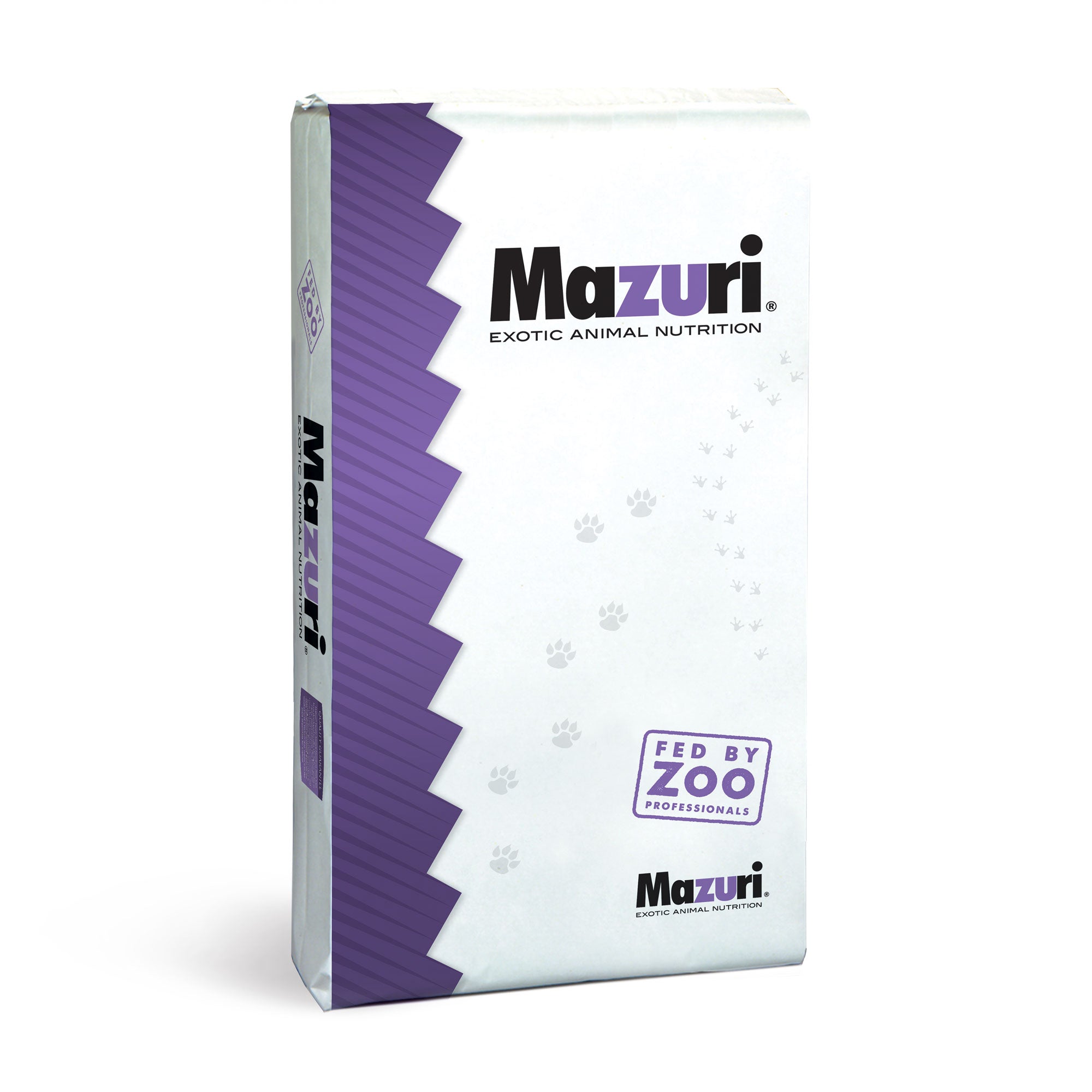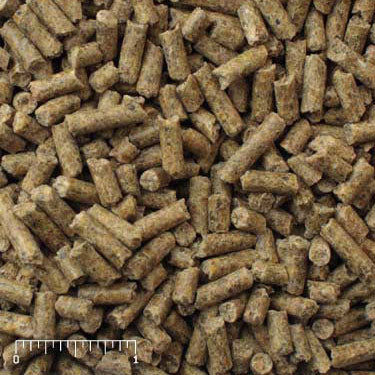Every exotic animal deserves the right nutrition
| Crude protein not less than Crude fat not less than Crude fiber not more than Moisture not more than Ash not more than Calcium not less then Calcium not more than Phosphorus not less than Sodium not more than | 23.00% 3.00% 8.00% 12.00% 10.00% 1.75% 2.25% 1.00% 0.61% |
Dehulled Soybean Meal, Ground Corn, Dehydrated Alfalfa Meal, Wheat Middlings, Dicalcium Phosphate, Ground Soybean Hulls, Calcium Carbonate, Soybean Oil, Lignin Sulfonate, Salt, Brewers Dried Yeast, Cane Molasses, Pyridoxine Hydrochloride, Choline Chloride, DL-Methionine, Vitamin E Supplement, Folic Acid, Calcium Pantothenate, Cholecalciferol (Vitamin D3), Menadione Sodium Bisulfite Complex (Vitamin K), Vitamin A Acetate, Manganese Proteinate, Zinc Proteinate, Copper Proteinate, Manganous Oxide, Nicotinic Acid (Niacin), Zinc Oxide, Preserved Thiamine with Mixed Tocopherols, Thiamine Mononitrate, Riboflavin-5-Phosphate, Copper Sulfate, Ferrous Carbonate, Citric Acid (a Preservative), Vitamin B12 Supplement, Zinc Sulfate, Calcium Iodate, Rosemary Extract, Biotin, Sodium Selenite, Cobalt Carbonate.
- Designed to be fed to breeding ratites.
- Feed free-choice from 2 – 4 weeks before breeding normally starts to two weeks after the last egg is laid.
- Consumption by emus will be between 0.75 to 1.5 pounds and ostriches should consume at least 4 pounds of feed per bird per day, depending upon egg production, body weight, and, primarily, upon how much the animal will eat.
- Supplement with calcium as follows:
- Mix the oyster shell with the feed at the appropriate level depending upon production level of the animal.
Egg production | Level of oyster shell to add | |
| Emu | Ostrich/Rhea |
from 0-10 eggs | No supplementation necessary | No supplementation necessary |
from 11-30 eggs | 1% | No supplementation necessary |
from 31-50 eggs | 2% | 1% |
over 50 eggs | 3% | -- |
from 51-90 egg | -- | 2% |
over 91 eggs | -- | Feed free choice |
- Always provide plenty of fresh, clean water. Thoroughly wash feed and water bowls on a regular basis. It is always good practice to wash hands thoroughly after feeding and/or handling animals. This diet is not for human consumption.
Storage Conditions
For best results, reseal the bag between uses or store contents of open paper sack in container with sealing lid. Store in a cool (75⁰F/24⁰C or colder), dry (approximately 50% RH) location free from rodents and insects. Do not offer moldy or insect-infested feed to animals as it may result in illness, performance loss or death. Freezing will not harm the diet and may extend freshness. Use within 1 year of bag manufacturing or "Best if Used By" date.
Ask Our Experts
Get nutrition advice you can trust from experts who understand the unique nutritional needs and behaviors of your exotic animals.
Get Advice
